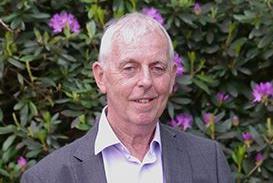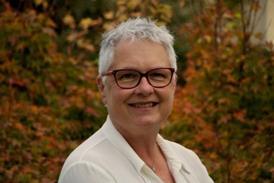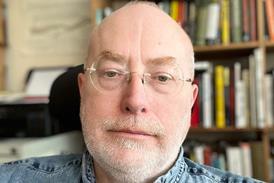Senior provider figures believe Stockport is favourite to be the region’s fourth emergency surgery site, plus the rest of today’s news and comment

1.31pm Senior figures in Greater Manchester’s provider sector believe Stockport is the favourite to be the region’s fourth site for emergency surgery, HSJ understands.
Three of the sites have already been confirmed, and sources in the region’s provider sector have told HSJ that Stepping Hill Hospital in Stockport is likely to be the fourth.
1.10pm A leaked NHS England study has revealed a significant relationship between the number of nurses on duty in hospitals and 40 indicators of patient care and outcomes.
The study, seen by HSJ, examined whether a statistically significant relationship could be shown between nurse staffing levels and patient outcomes over a number of years at University Hospitals Coventry and Warwickshire Trust.
The study was possible because of the high quality of performance data recorded by the trust, as well as using data from the VitalPac observations system, the Datix incident reporting tool and Allocate staffing software. UHCW chief nurse Mark Radford also contributed to the project.
12.44pm Jeremy Hunt has said recruiting 5,000 additional GPs would be the ‘maximum’ possible within the next five years.
The NHS would need be “imaginative” about the skill mix in primary care workforce, the health secretary added.
Mr Hunt announced last week that there would be 5,000 extra GPs in the NHS by 2020, as part of the government’s “new deal” for general practice.
He said it was “going to be a challenge to deliver that additional 5,000 GPs, but there were “good plans in place to do that”, speaking at the Commissioning Show in London today.
12.42pm Controversial plans to reconfigure emergency services at two Yorkshire hospitals have been relaunched, amid concerns about their financial sustainability and staffing levels.
Last summer commissioners were set to begin a public consultation on proposals to close one of the emergency departments at Huddersfield Royal Infirmary and Calderdale Royal Hospital, both run by Calderdale and Huddersfield Foundation Trust.
11.57am The Guardian reports claims at the Royal College of Nursing congress that overstretched A&E units are “places of terror” for elderly and vulnerable people.
Members said there was no longer only a winter crisis but a year-round crisis with older people bearing the brunt, as some were left on trolleys for up to 20 hours.
The NHS has missed its target to see 95 per cent of patients at hospital emergency departments within four hours for the last 100 weeks.
The RCN’s general secretary and chief executive, Peter Carter, said it was clear who was being left waiting longer. “It’s not people who’ve had road accidents, subarachnoid haemorrhages; it’s elderly people with respiratory problems,” the paper reports.
11.04am HSJ senior correspondent David Williams tweets:
Welcome honesty. And even then 5k is a BIG ask. Means some GP responsibilities will go to other clinicians. https://t.co/0XwkAgHzb3
— David Williams (@dwilliamsHSJ) June 24, 2015
10.43am Taking a look at this morning’s newspapers, The Times reports that patients in the countryside are left at a “severe disadvantage” by an NHS funding system that is skewed towards cities, doctors have said.
Hundreds of millions of pounds should be taken from healthcare in large towns and funnelled into rural areas where many people live more than an hour’s drive from the nearest hospital, claims the British Medical Association.
Stephen Watkins, director of public health at Stockport and a member of the BMA’s council, said the funding formulas were unfair to people living in the countryside and poor northern cities.
“In rural areas our formulas simply do not take account of problems such as the greater travelling distance and the lack of economies of scale occasioned by the fact that you have to position services more locally, so rural areas are severely disadvantaged.”
He said the redistribution could run to “hundreds of millions, or even billions” of pounds.
10.40am NHS organisations and the government need to take “rapid action” to avoid winter pressures in A&E, the NHS Confederation warns in a briefing paper ahead of a parliamentary debate on the issue today.
An opposition day debate tabled by Labour and covering record NHS deficits, the missing of the four-hour A&E targets and a reduced number of older people receiving social care support is due to be discussed in the House of Commons at around 1pm.
The NHS Confederation’s parliamentary briefing Opposition Day Debate – pressures on urgent and emergency care, warns many patients who attend A&E could have their needs better met outside of hospital if sufficient capacity existed.
The four-page briefing, sent to all MPs today, says making sure people have “access to the right care, in the right place at the right time” is a priority to reduce pressures on A&E.
The briefing highlights pressures in A&E are symptomatic of issues across the whole system affecting a raft of services including ambulance services, general practice and community and mental health and cannot be dealt with in isolation.
The NHS Confederation, which has around 500 members across health and social care, is calling on the government and national bodies to take five key actions, such as supporting local leaders to reshape urgent and emergency care as well as adequate transitional funding to build up capacity outside of hospitals.
The body sees potential in urgent and emergency care networks, proposed by NHS England’s medical director Sir Bruce Keogh, to help join up urgent care services. They will need to reflect local circumstances and avoid duplicating work already underway in many regions.
Dr Johnny Marshall, director of policy at the NHS Confederation, which represents 85 per cent of NHS providers and commissioners, said: “NHS organisations need to take rapid action now if they are to change services to make sure all patients have access to good quality urgent and emergency care services.
“Many local organisations are already making significant progress on this but local leaders need further support from the Government and national bodies, particularly NHS England, if we are to be successful across all parts of the country.”
10.16am This year’s council public health budgets were targeted for cuts by the Treasury because of a multimillion pound underspend in 2013-14.
The reason behind the shock £200m reduction was revealed today by HSJ’s sister title Local Government Chronicle.
Several finance and local government sources confirmed to LGC that the Treasury had cut public health budgets after picking up on the underspend.
The analysis also indicates that councils’ public health plans will be badly hit by the in-year cut, which was announced by the chancellor earlier this month.
10.14am Intrepid HSJ reporter Judith Welikala is at the Commissioning Show today - keep an eye on her twitter account for the latest developments. Jeremy Hunt is currently speaking - here’s a taster of what he’s been saying:
Hunt: in truth we think 5,000 is the maximum no of GPs we can recruit within 5 year timeframe, so we need to be imaginative about skill mix
— Judith Welikala (@JudithWelikala) June 24, 2015
10.02am The Care Quality Commission has hit back at the Royal College of General Practitioners’ call to ‘halt’ inspections of primary care.In a statement Steve Field, the CQC’s Chief Inspector of General Practice said:
“We are extremely disappointed that the Royal College of General Practitioners has called for an ‘emergency pause’ to our inspections of general practices, which we carry out to make sure that people across England get safe, high-quality and compassionate primary care.
“The safety and quality of care of people who use these services continue to be our number one priority.
“Already our inspections have allowed us to rate over 1,100 general practices across the country as Outstanding, Good, Requires Improvement and Inadequate. We believe these can help people to make informed choices about their care.
“So far, around 85 per cent of these general practices have been either Good or Outstanding.
“However, when over 1 in 7 general practices are not delivering the care that patients have every right to expect, now is not the time for us to put a halt on our inspections.
“In the last few weeks alone, we have found some seriously deficient primary care, which has led to us cancelling the registrations of some practices, in the interests of protecting the safety and quality of care for people who use these services.
“As a practising GP, I have never intended for our inspections to be experienced as a burden to those in the profession – and for a well-managed practice, the information we ask them to provide should not present itself as one.”
7.00am Good morning. We kick off today’s HSJ Live with a comment article by Harry Quilter-Pinner is a researcher for the Institute for Public Policy Research.
He argues on hsj.co.uk that the current NHS payment system is a hindrance to the NHS Five Year Forward View.
“The NHS as it stands is unsustainable ,” he writes. “One area of reform that must be undertaken - but that so far has been little talked about - is reform of the payment mechanism – that is, the method by which money is transferred from the Department of Health to the service providers at a local level, such as hospitals and GP surgeries.”
Also, catch up on yesterday’s most important stories and talking points with the Executive Summary.























1 Readers' comment